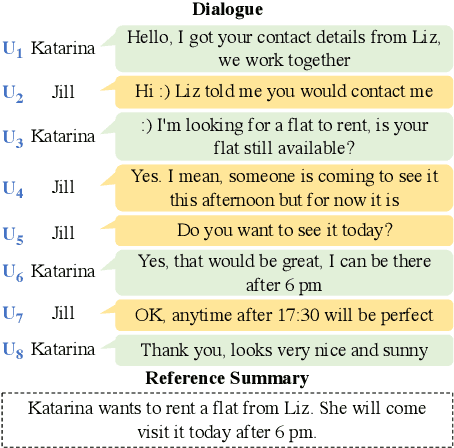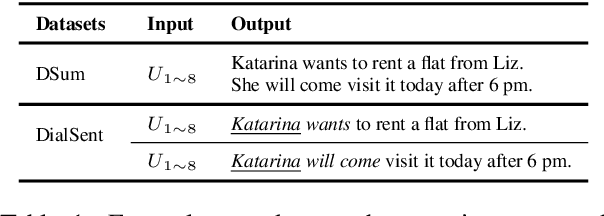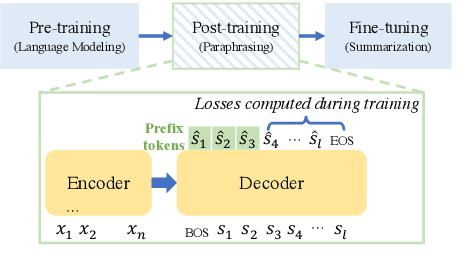Post-Training Dialogue Summarization using Pseudo-Paraphrasing
Paper and Code
Apr 28, 2022



Previous dialogue summarization techniques adapt large language models pretrained on the narrative text by injecting dialogue-specific features into the models. These features either require additional knowledge to recognize or make the resulting models harder to tune. To bridge the format gap between dialogues and narrative summaries in dialogue summarization tasks, we propose to post-train pretrained language models (PLMs) to rephrase from dialogue to narratives. After that, the model is fine-tuned for dialogue summarization as usual. Comprehensive experiments show that our approach significantly improves vanilla PLMs on dialogue summarization and outperforms other SOTA models by the summary quality and implementation costs.
* Findings of NAACL 2022
 Add to Chrome
Add to Chrome Add to Firefox
Add to Firefox Add to Edge
Add to Edge